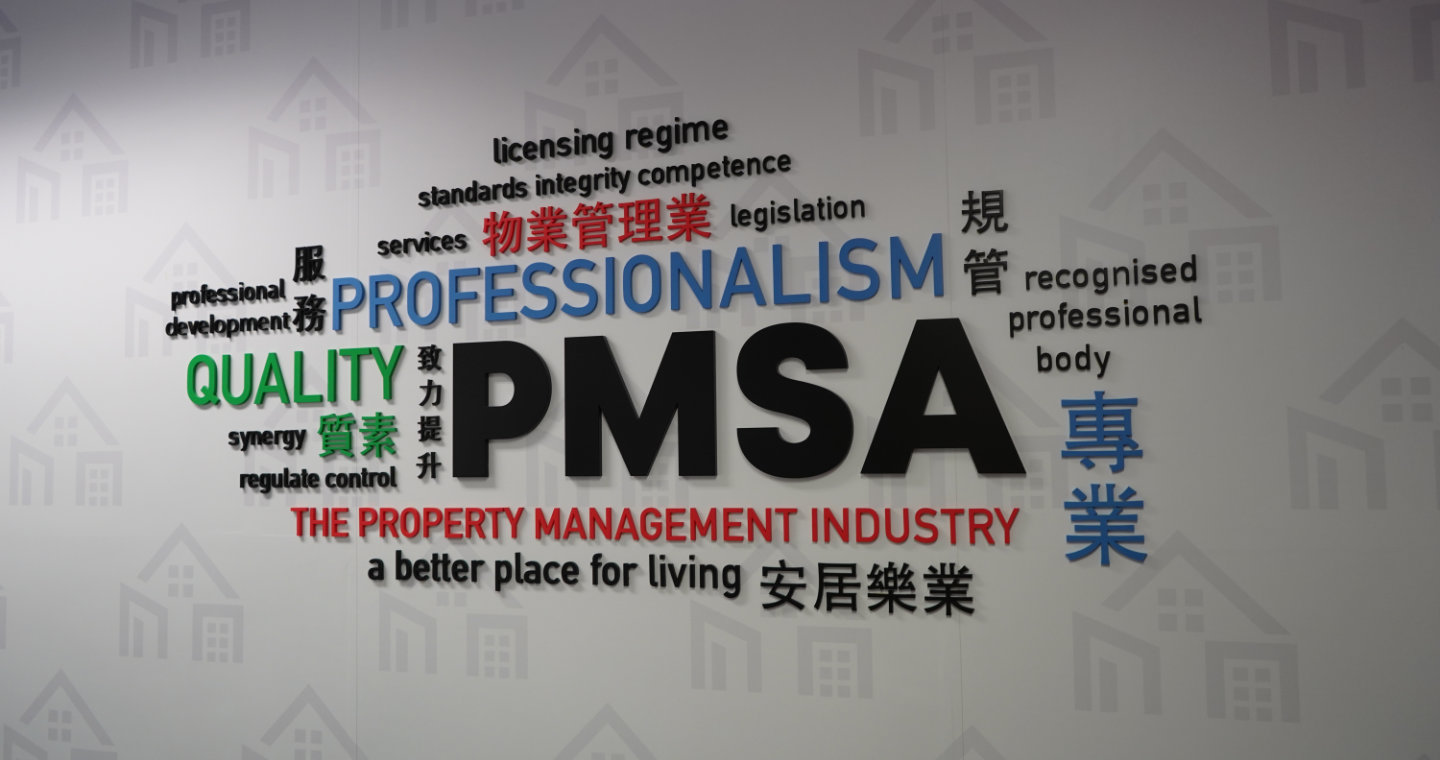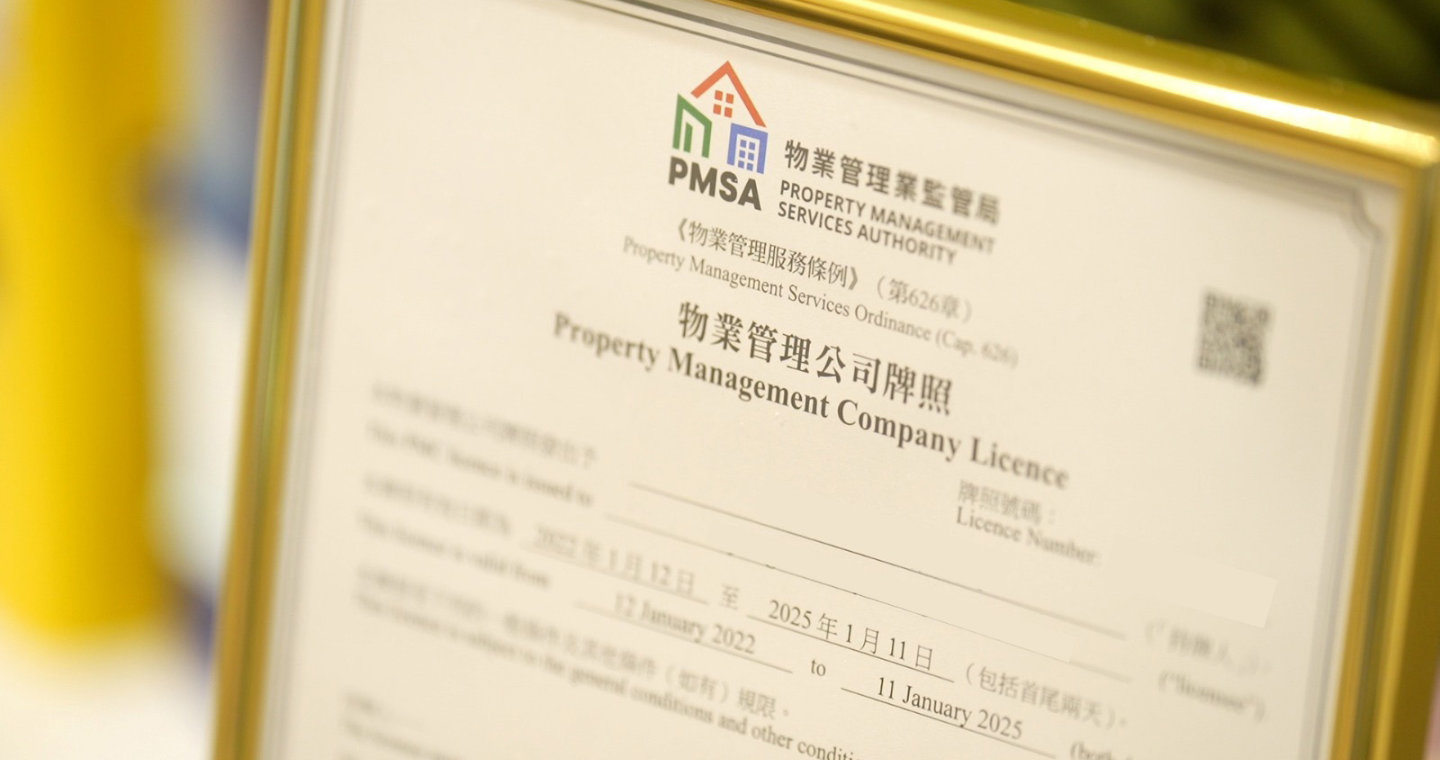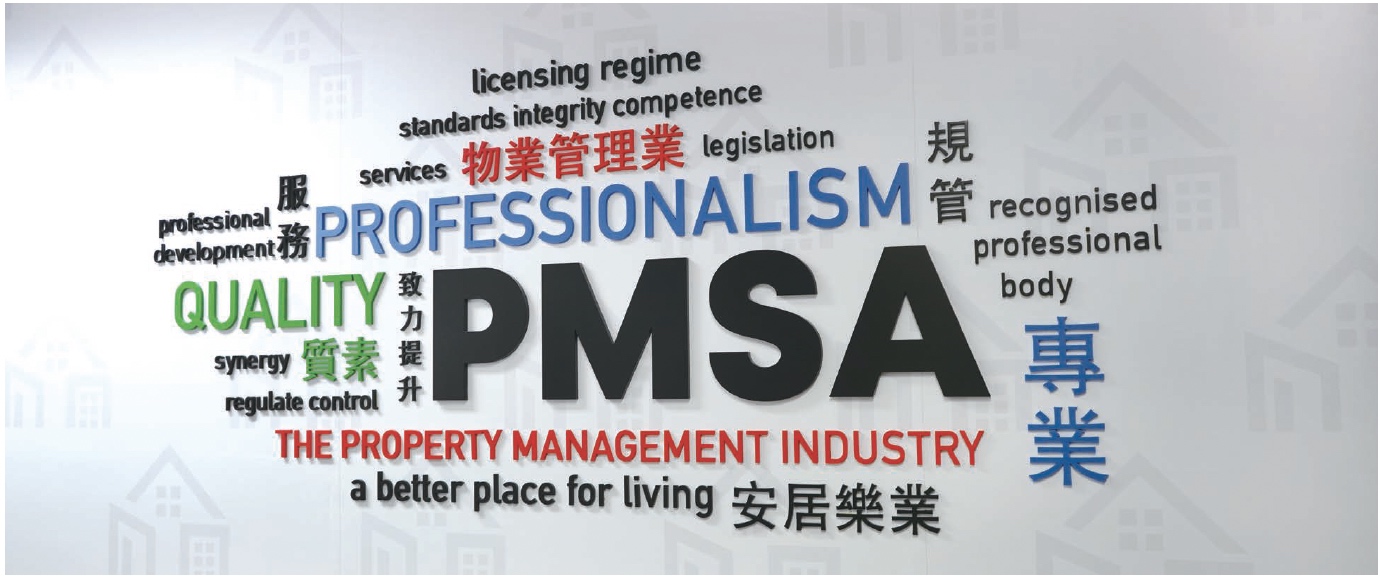Property Management Services Authority Formulates Best Practice Guides on "Handling Dripping Air Conditioners" and "Handling Water Seepage in Properties"
Property Management Industry Assists in Addressing Air-Conditioner Dripping and Water Seepage Issues
The Property Management Services Authority (PMSA), pursuant to the Property Management Services Ordinance (Cap. 626), has issued the Best Practice Guides on “Handling Dripping Air Conditioners” and “Handling Water Seepage in Properties” to property management (PM) licensees, encouraging licensed PM companies and practitioners to assist in addressing air-conditioner dripping and water seepage issues within private properties.
“The Chief Executive’s 2025 Policy Address” (Policy Address) outlines a range of measures aimed at enhancing building management and improve building safety. These include enhancing the inspection and testing procedures for handling water seepage problems, thereby encouraging property owners to fulfill their responsibilities for proper property maintenance, as well as promoting mediation as a means to resolve disputes among residents.
The PMSA fully supports the implementation of the measures set out in the Policy Address. In alignment with the amendments made in August this year to the Public Health and Municipal Services Ordinance (Cap. 132), and based on information provided by the Food and Environmental Hygiene Department (FEHD) as well as with reference to relevant regulations, the PMSA has formulated the aforementioned two Guides. The aim is to more effectively assist licensed PM companies and their practitioners in handling air-conditioner dripping and water seepage matters within private buildings.
Air-conditioner dripping and water seepage within properties may not only cause nuisance but also affect environmental hygiene and pose safety risks to properties. If disputes arise between neighbours, community harmony may be undermined. PM work is integral to the daily lives of the public, and PM practitioners interact with us regularly. As PM practitioners are familiar with the property conditions, they can play bridging role and act as mediators, coordinating and assisting in handling air-conditioner dripping and water seepage issues in private properties, thereby promoting community harmony.
The Guides on “Handling Dripping Air Conditioners” and “Handling Water Seepage in Properties” outline relevant legal responsibilities and related regulations: if an owner/occupant causes a nuisance with air-conditioner dripping or water seepage in their property unit, the FEHD or the Joint Office established by the FEHD and the Buildings Department may issue “Nuisance Notice”/“Nuisance Order” under the Ordinance; and procedures for PM companies to assist in handling air-conditioner dripping and water seepage issues. In addition to the FEHD’s active participation in formulating the Guides, the PMSA has also consulted professional industry bodies and owners’ organisations. The Chinese and English versions of the Guides can be downloaded from the PMSA website (https://www.pmsa.org.hk/tc/regulatory/codes-of-conduct).
Dr James WONG, Chairperson of the PMSA, said, “'At present, instances where owners fail to cooperate in addressing air-conditioner dripping or water seepage issues within properties may primarily stem from a lack of awareness of the issues involved and related legal responsibilities. According to the Guides, PM companies and practitioners may issue advisory letters/notification letters to relevant parties, clearly explaining that the matter will be referred to the FEHD/Joint Office for handling and setting out the legal consequences of receiving ‘Nuisance Notice’/‘Nuisance Order.’”
The PMSA will collaborate with the FEHD to organise Continuing Professional Development seminar on the Guides for the industry later this month, further encouraging them to handle air-conditioner dripping and water seepage issues within properties with reference to the Guides. To promote the resolution of water seepage disputes in properties through mediation, the Department of Justice, in collaboration with the Environment and Ecology Bureau and the FEHD, has launched the “Pilot Scheme on Community Mediation,” offering mediation skills training, free of charge, for PM practitioners, and has received positive response from the industry.
Dr James WONG emphasised, “PM practitioners have a distant advantage in communication and coordination work within properties. Timely intervention in accordance with the aforementioned Guides can often resolve dripping and seepage issues at the early stage, minimising complaints and conflicts, and overcoming community hardship.”
The PMSA has already issued a total of 24 Codes and Guides covering various PM areas, including “General Code of Conduct”, “Complaint Handling Mechanism of Property Management Companies”, “Effective Control over Property Management Business by Property Management Companies”, “Handling Moneys Received on behalf of Clients by Property Management Companies”, “Obligations of Property Management Companies regarding the Ending of their Appointment”, “Prevention of Corruption”, “Prescribed Conditions on Licences”, “Protection on Personal Data”, “Handling Payment for or Arranging Payment to be Made by Clients”, “Provision of Prescribed Information and Financial Documents to Clients”, “Carrying out Procurement for Clients and Prevention of Bid-rigging”, “Handling Emergencies”, “Handling Scaffolding Works”, “Handling Suspended Working Platform Works”, “Handling Outsourced Property Management Services”, “Prevention of Corruption – Staff Recruitment and Management”, “Distribution and Display of Promotional Material”, “Tree Management Work”, “Obligations of Property Management Company under the Building Management Ordinance”, “Handling Building Works”, “Handling Instrument of Appointing a Proxy”, “Handling Fire Safety Work”, “Slope Management Work” and “Handling Drainage Work”.
The PMSA will continue to issue various Codes and Guides covering other PM areas in order to provide guidance to the industry, and will review and update the issued Codes and Guides from time to time to stay in line with the latest development.
Ends/Thursday, 16 Oct, 2025
Issued at HKT 18:00
NNNN



























